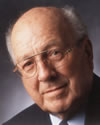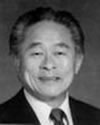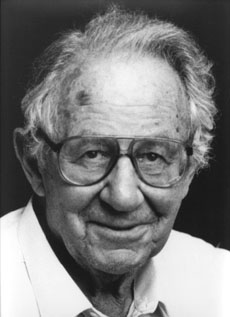It is the stated goal of SAPhS to promote pharmaceutical sciences and scientists. This includes promoting their perception and recognition among the population. The awarding of the Reichstein Medal should contribute to this. It is reminiscent of the merits of the Swiss chemist and Nobel Prize winner Tadeus Reichstein, who developed the synthesis of ascorbic acid (vitamin C) in 1932 and thus made its industrial production possible. The Reichstein Medal is awarded by the SAPhS to internationally recognized personalities who have made a direct or indirect special interest in promoting pharmaceutical sciences in the fields of research, teaching and practice.

Regulations for the award of the Reichstein Medal
Prof. Dr. Dr. h.c. Katalin Karikó
Laureate 2021
This year, SAPhW honors with the Reichstein Medal Prof. Dr. Dr. h.c.. Katalin Karikó for her contributions to the development of mRNA technology. For a long time, this technology was not considered suitable for drug and vaccine development. It is thanks to the tireless work of pioneers like Prof. Karikó, carried out against great odds and with tenacity, that mRNA vaccines to fight the corona pandemic have become a reality today.
Retrospect Lecture and Celebration Sept. 6, 2021

Prof. Dr. Gerd Folkers
Laureate 2014
Prof. Dr. Gerd Folkers received the Reichstein medal for his outstanding merits as scientist and university professor as well as his significant contributions to the formation of the pharmacy education at Swiss universities. He was a founder member and first president of the Swiss Society of Pharmaceutical Sciences (SSPhS) and is today head of the Collegium Helveticum, an institution of the ETH Zurich and the University of Zurich, studying new scientific perspectives from interdisciplinary processes.
Report pharmaJournal 11-2014 (in German)

Jean-Pierre Lorent
Laureate 2005
For the first time the Reichstein medal has been awarded for outstanding pharmaceutical services. J.P. Lorent has in the past totally committed himself to implement the ideas of the founders of the Swiss Toxicological Information Centre, which is nowadays internationally recognized for his free toxicological service to anyone enquiring, such having saved numerous lives during its foundation. The excellent reputation of the Tox Centre today has also been achieved by the modest, but the systematic and persevering work of J.P. Laurent.

Werner Glatt
Laureate 2002
Founder an honorary president of the Glatt group of companies, for his excellence as entrepreneur and for his cooperation with universities promoting Pharmaceutical Sciences.

Prof. em. Dr. Richard R. Ernst
Laureate 2000
Prof. em. Dr. Richard R. Ernst has been awarded the Nobel Prize in Chemistry in 1991 for a radical improvement of nuclear magnetic resonance spectroscopy, therewith creating a powerful diagnostic tool in medicine. After receiving his Ph.D. in Technical Sciences in 1962 from the Swiss Federal Institute of Technology in Zurich, he worked five years in California and returned 1972 to Zurich, where he became full professor in 1976.

Prof. em. Dr. Rolf Zinkernagel
Laureate 1997
Prof. em. Dr. Rolf Zinkernagel, professor of experimental immunology at the University of Zurich and director of the Institute of Experimental Immunology, has been rewarded, together with the Australian immunologist Peter Doherty, with the 1996 Nobel Prize for Medicine. Their discovery, how the immune system detects virus-infected cells is considered to be of trendsetting importance for the clinical medicine and allows the Pharmaceutical Sciences to develop novel vaccines.

Prof. Dr. William I. Higuchi
Laureate 1994
Prof. Dr. William I. Higuchi is a Distinguished Professor of the Department of Pharmaceutics and Pharmaceutical Chemistry at the University of Utah. He has graduated more than 100 Ph.D. students and is worldwide known because he has authored more than 400 scientific papers and book chapters, has edited the periodical "International Journal of Pharmaceutics" and his leadership in drug delivery. Prof. Higuchi is world-wide known for his rigorous scientific contributions in developing mechanistic models of biologically relevant processes.

Tadeus Reichstein died on August 1, 1996, shortly after his 99th birthday.
From 1938 to 1950 he was Head of the Pharmaceutical Institute and from 1946 to 1960 Head of the Institute of Organic Chemistry, both at the University of Basel.
During his scientific career he received various honours and awards.
For the isolation, structure elucidation and synthesis of important hormones of the adrenal cortex he shared the 1950 Nobel Prize in Medicine with the American scientists Eward C. Kendall and Philip S. Hench.
According to an article in the Neue Zürcher Zeitung of July 23, 1997, on the occasion of his 100th birthday, Reichstein told in an interview that his most important appreciation in Switzerland was the Marcel Benoist Prize in 1948 and the creation of the Tadeus Reichstein medal of the SGPhW for excellence in pharmaceutical sciences.
